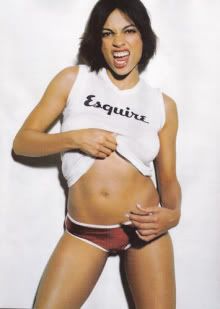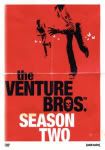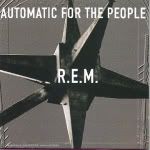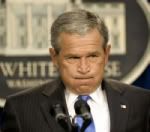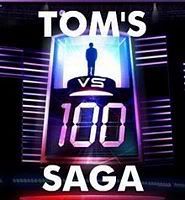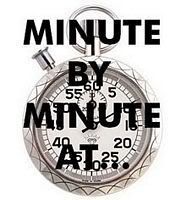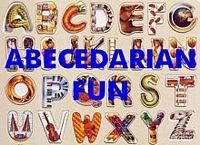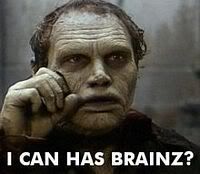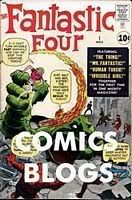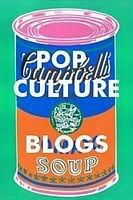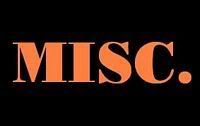MOVIES: The Hitchhiker's Guide to the Galaxy
Spoilers ahead, I would imagine.
I expected The Hitchhiker's Guide to the Galaxy would be a mild diversion, a middling action comedy just worthwhile enough to spend two hours in front of. I was more than pleasantly surprised to find that it was absolutely wonderful from beginning to end.
What's really surprising is that it's not just the comedy that succeeds; the visuals and the special effects also work perfectly, enhancing the comedy while maintaining story integrity. They work as visual gags but they also work as captivating space fantasy. The Heart of Gold's Infinite Improbability Drive, for example, is a totally ridiculous concept brought to life with such confident, audacious cleverness, you can't help but accept it on its own terms. As the ship cycles through various realities, you don't question it (and you would have to be a real sci-fi hardass to begin with to question the technology in a comedy), you merely revel in delight at the fact that, okay, now all the passengers have turned into furniture, or yarn puppets.
Or: when the Vogon fleet appears over Earth, the camera pulls back with a musical sting to reveal the enormity of the space craft (BUM! BUM! BUM!!)... and then pulls back more, because the ship is that big (BUM BUM!!)... and it pulls back more... (BUM! BUM BUM BUM!!)... and more... and more... and just when it's done, it pulls back some more (BUM!!!).... The same gag was used to reveal Dark Helmet's ship in Spaceballs, but it's done so well here, it's still funny. But it's not just funny; for newbies to the Hitchhiker world, it also lets you know: they're not kidding, these guys really are going to destroy the Earth.
Or then there's my favorite scene in the movie, when Slartibartfast takes Arthur on a tour of the planetary warehouse. The two of them are in a rickety metal bucket in a tiny little corridor, and suddenly they (and we the audience) burst forth into a chamber vast beyond imagining, inside of which an uncountable number of entire planets are being constructed. It's funny to see scaffolding covering a half-built world, but it's also breathtaking. The epic scale absolutely amazed me; I had shivers. I was overcome with the terrifying thrill of encountering something unknowably, impossibly enormous, in a way very few sci-fi films have ever successfully conveyed; it brought to mind Dave Bowman's encounter with the space monolith in 2001: A Space Odyssey, or, to a lesser degree, Spock's exploration of the interior of V'ger in Star Trek: The Motion Picture. The effectiveness of the Hitchhiker scene is enhanced by the unexpectedness of such imagery in a comedy. And Martin Freeman, as Arthur Dent, does a wonderful job of conveying the marvel of such an experience.
Freeman is very good overall, from his oh-so-British, deadpan, disbelieving reactions to the amazing universe of oddities he's confronted with, to his hysteria when his reserve breaks, to his sense of loss over both the potential love of his life and his entire homeworld. Mos Def (as Ford Prefect) always surprises me; he's much more vulnerable, much slier, much funnier, and has a much greater range than any rapper-turned-actor has any right to be. Some will say Trillian should've been played by a British actress, and that's true, except for the fact that it's wrong because Zooey Deschanel is fantastic. She's funny and warm and captivating, and you can look into her huge, mesmerizing grey eyes and see why, of all the women on planet Earth, Arthur Dent might feel blessed that she's the one to have survived.
The voice acting is also stellar; Helen Mirren is the mega-computer Deep Thought, Stephen Fry is the voice of the Guide (the animated entries in which are another visual treat), and you can't get more perfect casting than Alan Rickman as the voice of Marvin, the infinitely depressed robot. I wasn't thrilled with the look of Marvin -- a little too big, a little too simple-looking -- but Rickman's line readings were dead-on, and the movie wisely didn't overuse the character.
And then there's Sam Rockwell as Zaphod Beeblebrox. Oh, my. He absolutely owns this movie. Every word out of his mouth is comedy gold. He plays Zaphod as a hyper-egomaniac with effortless charisma and boundless energy, relentlessly driven toward money and power but not nearly bright enough to achieve it on his own. Rockwell is obviously channeling George W. Bush -- but it's Bush before he quit cocaine (as Ian was kind enough to point out), which is the crucial detail that sends the character into the realm of mad brilliance.
The movie is not going to please every fan of the book, because the movie couldn't possibly have been made if it had been a slave to the print version. There's the Vogon poetry scene, for example; in the movie, we get only a smidgen of the full version from the book. But that's a smart and necessary choice; print comedy is a different animal from performed comedy, and had the scene been much longer, it would've killed the momentum of the film dead. That said, there was one extended sequence, completely irrelevant to the main characters or plot, that I wouldn't have expected to make the translation, but which worked perfectly, and that was the materialization of the sperm whale and the bowl of petunias miles above the surface of the planet Magrathea. It was every bit as funny, sad, and strangely beautiful as it was in the book; it was a scene for the fans, which I also believe would be just as affecting for a newcomer to Douglas Adams.
True to the spirit of the book, yet able to exist independently of it (I honestly am baffled as to why Roger Ebert found it so inaccessible), The Hitchhiker's Guide was great entertainment.

